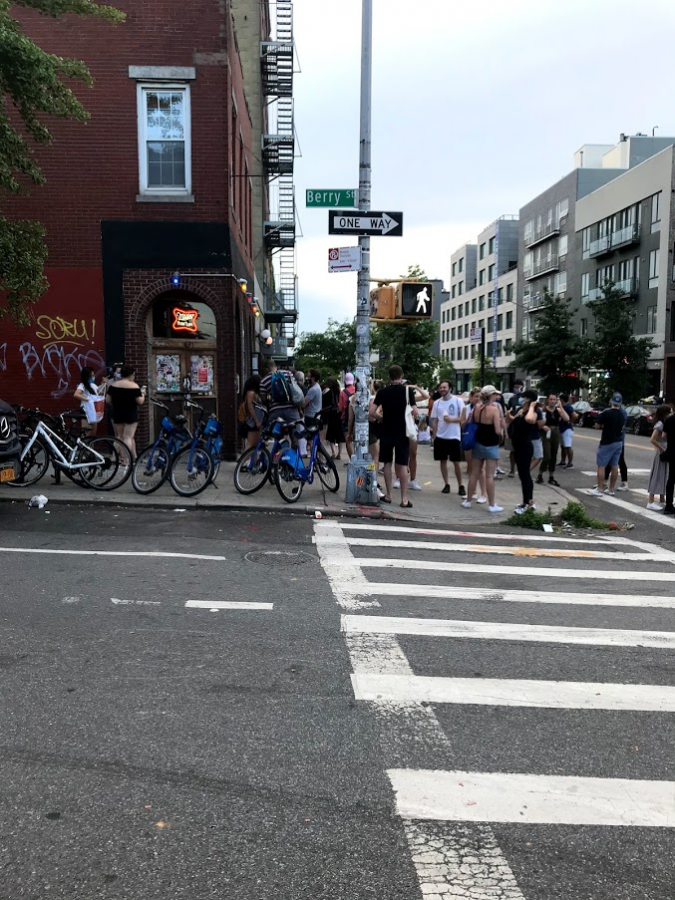COVID-19: A Mishandling of a Crisis
How lax regulations have led to an increase in COVID-19 cases in the United States, currently.
A local bar in Williamsburg, Brooklyn, during the Coronavirus pandemic, shows that many people are not following social distancing precautions or wearing masks.
As of June 22, 2020, over 122,000 people have been confirmed dead due to COVID-19 in the United States. I say ‘confirmed,’ because mix-ups and misdiagnoses have deflated the number. The true number of those who have passed due to this disease will never be known, both globally and nationally.
Four months after the first report of a COVID-19 case in the United States, cases are still rising in many areas in the country.
A third of a year has passed, and states such as Alabama are recording “second peaks,” while other countries have eliminated the disease within the past few months, such as New Zealand. This is disheartening to Americans, to say the least. How can New Zealand discharge their last COVID-19 patient from the hospital on the same day when the United States eclipses 122,000 confirmed COVID-19 deaths? For reference, New Zealand recorded a total of 22 deaths due to COVID-19.
Even as the total number of deaths rises, American citizens are rallying together against efforts and measures to protect citizens from the virus, efforts and measures which were used properly in New Zealand to control COVID-19.
On May 25, 2020, protestors gathered in Chicago showing their alleged outrage with the state of Illinois not reopening upon their demands. One of the protestors carried a sign reading “Open Illinois Now.” A rallying cry to, apparently, many: I want my ‘freedom’ even if it kills me.
Going to the grocery store or taking a walk — these actions are not one’s guaranteed freedoms anymore.
I live in the Lower East Side in Manhattan, a neighborhood with residents both young and old. When I am privileged enough to go outside, usually for under an hour, and at most once or twice a day, I wear a mask.
I wear a mask, I keep my distance from others, I open doors with my elbows and push elevator buttons with my wrist. If I get COVID-19, I probably will not be affected that greatly, given my age and the statistics — maybe a small fever, a loss of taste — but it’s not about me. It’s about my family, my neighbors, and those around me. Both my mother and my brother have severe asthma, and my father is in a susceptible age range ﹣why should I take risks that can personally affect them?
People have become too self-centered, thinking about themselves and those with whom they are close. They don’t think about their neighbors and the people whom they pass on the street. Just because an individual is healthy or just because they think that COVID-19 will not affect them, does not mean that they do not have the ability to spread the disease to those more susceptible — they do. By not respecting the idea that others with serious underlying health conditions are put at risk by your contact, you fail all of humanity.
If I get COVID-19, I probably will not be affected that greatly, given my age and the statistics — maybe a small fever, a loss of taste — but it’s not about me. It’s about my family, my neighbors, and those around me.
Maury Ahram is the Sports Editor of ‘The Science Survey’ and a Staff Reporter of ‘The Observatory.’ He enjoys journalistic writing because of its...

